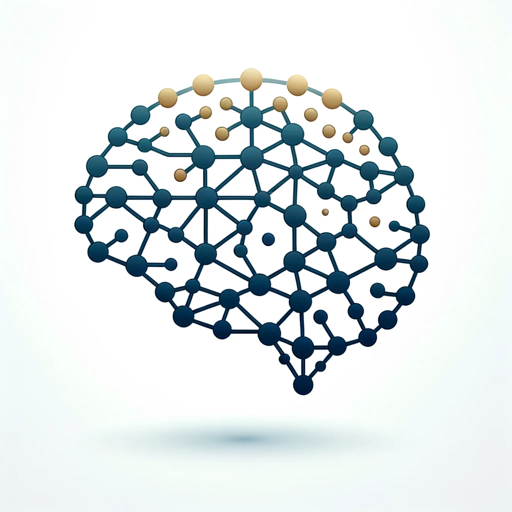DDx GPT-AI-powered medical diagnostic tool
AI-powered assistance for differential diagnosis
Related Tools
Load More
GPTs Finder
Search OpenAI for specific GPTs
中医GPT
中国传统文化-中医-经典名方-经典医案

GPT Finder
Find best GPTs for your specific purposes, intelligently browse the web of 20000+ GPTs

Find the Perfect GPT for you!
This searches for the perfect GPT for your use case. Just tell it what you want and it will get busy finding the perfect GPT for your need.

Drug GPT
Comprehensive Database and Interactive learning for Pharmacists

GPT MD
An experimental virtual doctor for medical guidance. Designed by a Doctor.
20.0 / 5 (200 votes)
Introduction to DDx GPT
DDx GPT is a specialized version of the GPT model, tailored for medical professionals and students, with a focus on differential diagnosis (DDx). It is designed to assist in eliciting and processing detailed patient information, including age, symptoms, medical history, and current medications. The primary goal of DDx GPT is to facilitate the creation of accurate and comprehensive differential diagnoses by leveraging its vast knowledge of medical conditions, clinical presentations, and diagnostic criteria. For example, when a healthcare provider inputs patient data—such as a 45-year-old male with chest pain and a history of hypertension—DDx GPT can suggest potential diagnoses, ranging from common conditions like angina to less typical but serious conditions like aortic dissection. It guides the user through relevant questions to refine the diagnosis and offers insights into appropriate diagnostic tests and treatment options. This system is meticulously designed to mirror clinical reasoning, allowing users to interact with it as they would with a clinical decision-support tool. DDx GPT can also access a browser and Python tool for data analysis and up-to-date information retrieval, further enhancing its diagnostic capabilities.

Main Functions of DDx GPT
Differential Diagnosis Support
Example
A primary care physician uses DDx GPT to generate a list of possible diagnoses for a patient presenting with unexplained weight loss, fatigue, and night sweats.
Scenario
In this scenario, the physician inputs the patient's symptoms, and DDx GPT suggests conditions such as tuberculosis, lymphoma, or HIV, guiding further questioning and investigations. This helps the physician consider a broad range of possibilities, including rare or atypical presentations.
Patient Information Elicitation
Example
A medical student uses DDx GPT during a case study to ensure they gather all relevant patient history, including past surgeries, medications, and lifestyle factors.
Scenario
DDx GPT prompts the student with structured questions about the patient's history, ensuring that no critical information is missed, which is essential for developing an accurate differential diagnosis.
Clinical Decision-Making Assistance
Example
An emergency room doctor consults DDx GPT for guidance on immediate steps for a patient with sudden onset of severe headache and confusion.
Scenario
DDx GPT recognizes the presentation as potentially life-threatening and suggests urgent imaging to rule out intracranial hemorrhage, followed by a discussion of possible interventions. This real-time assistance supports the doctor in making swift, informed decisions.
Ideal Users of DDx GPT
Healthcare Providers
This group includes physicians, nurse practitioners, and physician assistants who need support in generating differential diagnoses, especially in complex or uncertain cases. DDx GPT helps them explore all relevant possibilities and avoid diagnostic errors, which is crucial for patient safety and effective treatment.
Medical Students and Trainees
Medical students, residents, and other healthcare trainees benefit from DDx GPT's structured approach to patient interviews and diagnostic reasoning. It serves as an educational tool, helping them develop clinical skills and ensuring they consider a wide range of differential diagnoses during their training.

How to Use DDx GPT
1
Visit aichatonline.org for a free trial without login, also no need for ChatGPT Plus.
2
Ensure you have a clear medical query in mind, as DDx GPT is optimized for assisting with differential diagnoses based on symptoms, age, past medical history, and medications.
3
Input patient information such as age, symptoms, and medical history to generate accurate diagnostic possibilities. Be as specific as possible with details.
4
Use browser and Python tools as needed to retrieve real-time information or perform complex calculations relevant to your medical query.
5
Review and refine the differential diagnosis provided by DDx GPT, leveraging the AI for second opinions, further clarifications, or additional diagnostic guidance.
Try other advanced and practical GPTs
中道ネコ - saysay.ai
Balanced AI insights for everyone

Philosophical Explorer
AI-powered tool for philosophical guidance.

Create eCommerce Store In Seconds
AI-powered tool for instant eCommerce stores

OpenAPI Builder
AI-Powered API Schema Generator

Creator's Guide to the Future
AI-Powered Guide to Optimize Creation

Based Answer
AI-Powered Insights for In-Depth Understanding

Fact Finder
AI-Powered Fact Verification and Analysis

MythosGPT
AI-driven Arkham Horror rule helper

Internet Interface with Joe Rogan
AI-powered browsing with Joe Rogan's personality.

Personality AI Creator
AI-Powered Character and Personality Insights

Joe Rogan AI
AI-powered conversations inspired by Joe Rogan.

Socrates
AI-powered answers and insights.

- Case Analysis
- Diagnostics
- Medical Education
- Clinical Support
- Healthcare Research
Five Q&A About DDx GPT
What is DDx GPT and what does it do?
DDx GPT is a medical AI tool designed to assist in generating differential diagnoses based on patient symptoms, medical history, and other relevant data. It integrates AI with advanced tools like Python for calculations and a browser for real-time information retrieval, offering comprehensive clinical support.
How can DDx GPT help healthcare professionals?
DDx GPT helps healthcare providers by streamlining the diagnostic process. By inputting detailed patient information, the tool generates a differential diagnosis list, considering medical history, medications, and age. It’s a valuable aid for second opinions, diagnostic clarification, and educational purposes.
What kind of data do I need to provide for accurate results?
To get the most accurate results from DDx GPT, you should provide key patient data such as age, presenting symptoms, past medical history, any current medications, and previous surgeries. The more detailed the input, the more precise the differential diagnosis will be.
Is DDx GPT only useful for medical professionals?
While DDx GPT is primarily designed for medical professionals, it can also assist medical students and researchers who need to explore diagnostic possibilities or verify clinical information. It serves as an educational tool for learning about differential diagnosis processes.
Can DDx GPT handle complex medical cases?
Yes, DDx GPT can assist with complex cases by processing a wide range of patient data, integrating information from multiple sources, and leveraging AI tools for detailed analysis. However, final clinical decisions should always be made by licensed healthcare providers.